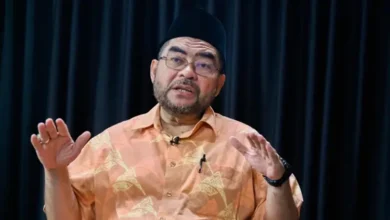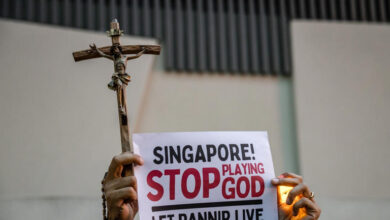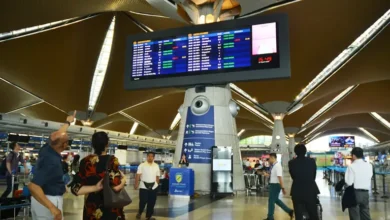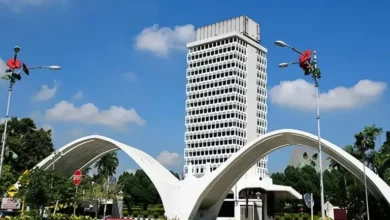Covid-19 : Prevent a ‘mini Wuhan’ in Klang Valley
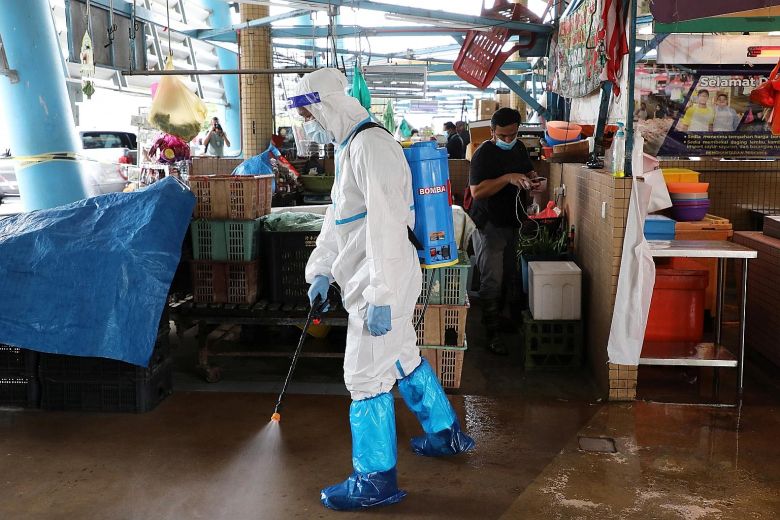 Experts fear that the Klang Valley, which is experiencing a spike in Covid-19 cases, could become a “mini Wuhan” if stricter measures are not put in place to contain community transmission of the virus.
Experts fear that the Klang Valley, which is experiencing a spike in Covid-19 cases, could become a “mini Wuhan” if stricter measures are not put in place to contain community transmission of the virus.
They believe tighter Conditional Movement Control Order (CMCO) measures are key to preventing the Klang Valley, which is home to more than 7.2 million people, from becoming the epicentre of the pandemic in the peninsula.
Malaysian Public Health Physicians Association president Datuk Dr Zainal Ariffin Omar said epidemiologists had anticipated the trend of rising cases and clusters when there was a perceived lack of measures taken to curb cases coming in from Sabah.
He believed that the number of new cases in the Klang Valley would increase in the next two to three weeks due to heightened screenings and contact-tracing activities.
“What is worrying is that the Klang Valley could become another Sabah or ‘little Wuhan’ in terms of cases spreading, not only within it, but also to other parts of the country.
“This can be seen in the daily statistics.”
Dr Zainal Ariffin said to stem this, the authorities need to enforce a modified version of the initial MCO or, at the very least, stricter CMCO regulations.
The authorities, he stressed, must examine the gaps in policy and CMCO enforcement and extend it, especially within the Klang Valley.
The Klang Valley, which had seen relatively manageable cases of Covid-19 since the MCO in March, recently witnessed a sharp rise in new infections following the conclusion of the Sabah election last month.
The explosion in new cases was widely attributed to those who contracted the virus in Sabah and returned to the peninsula.
As a result, Kuala Lumpur, Putrajaya and Selangor were placed under the CMCO from Oct 14 to Oct 27.
On Saturday, 51 per cent of the 869 new Covid-19 cases were attributed to Sabah, with the Klang Valley accounting for 20.3 per cent.
Epidemiologist Datuk Dr Awang Bulgiba Awang Mahmud said there was strong evidence to support the call to extend the CMCO.
New cases in Selangor, he said, would start to dip after four to six weeks, after which the number of discharged cases was likely to exceed new cases.
However, he believed Sabah would need a longer recovery time of between six and eight weeks given its significant community transmissions, coupled with its large migrant population.
All resources should be made available to ensure the pandemic does not overwhelm Sabah’s healthcare system. This, he suggested, could also be done by commandeering other quarantine facilities with enough personnel deployed for the purpose.
“I think in Sabah, we are moving inexorably towards a stricter MCO unless we marshal even more resources.
“Otherwise, it will be extremely difficult to contain the outbreak in Sabah with the current resources. The window to accomplish this is closing rapidly and we need to do it now,” said the Universiti Malaya (UM) professor.
UM’s Tropical Infectious Diseases Research and Education Centre director Professor Dr Sazaly Abu Bakar said the Health Ministry might have to look at the number of cases rising in other states before enforcing the CMCO there.
He said it was understandable that the CMCO was imposed in the Klang Valley since there was a significant number of community transmissions, higher population density and a highly mobile population.
Proposing stricter CMCO conditions, he said the authorities should look into measures, such as banning gatherings with more than 25 people at a time. Nst
5 Things You Need To Stop Doing At A Shopping Mall To Stop The Spread Of COVID-19

